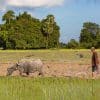
On the Origins of Animalist Marxism
In human-animal studies and critical animal studies, the most influential treatment of animalist Marxism and Marxist animalism has been developed by Ted Benton on the basis of his interpretation of Karl Marx’s work. This article focuses minutely on Benton’s argument and Marx’s Economic and Philosophical Manuscripts of 1844 (or Paris Manuscripts), refuting Benton’s contentions point by point and forcefully challenging the idea that Marx’s work was speciesist in orientation. | more…

Posture Maketh the Man
In this article from Ever Since Darwin, Stephen Jay Gould describes how the Museum of Natural History’s Gobi Desert expeditions of the 1920s failed to achieve their stated purpose: to find the ancestors of man in Central Asia. In a perceptive analysis of the political role of science and of the social biases that affect thought, Gould describes how anthropologists—despite a complete lack of direct evidence—believed that human evolution was propelled by an enlarging brain, and not, as is the case, upright posture. | more…

#MeToo
An original poem by award-winning writer Wilderness Sarchild. | more…
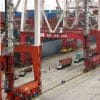
The Enigma of China’s Growth
China’s economic development and success has been widely misunderstood and treated with perplexity. This overview of the Chinese economy provides an analysis of the drivers of the country’s growth and crises, including industrialization and the agrarian question. | more…
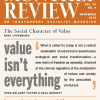
November 2018 (Volume 70, Number 6)
The twenty-first century has resulted in a vast upsurge of ecological Marxism and ecosocialism more generally, building on the environmental critique of capitalism embedded in classical historical materialism. At the same time, it has also engendered opposing tendencies and approaches concerning how we understand relentless ecological destruction under capitalism. This issue is dedicated to exploring the theoretical advances, schools of thought, and debates on the left in regard to our world’s ecological crisis, which threatens the survival of humanity and is inescapable within the present capitalist system of production. | more…
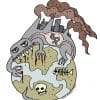
Value Isn’t Everything
The rapid advances in Marxian ecology in the last two decades have given rise to extensive debates within the left, reflecting competing conceptions of theory and practice in an age of planetary ecological and social crisis. One key area of dispute is the attempt by a growing number of radical environmental thinkers to deconstruct the labor theory of value in order to bring everything in existence within a single commodity logic. For many in Green circles, Karl Marx and a long tradition of Marxian theorists are to be faulted for not directly incorporating the expenditure of physical work/energy by extra-human nature into the theory of value. In response, this article argues that any form of analysis that seeks to eliminate the deep-seated dialectical contradictions between the natural form and the value form, as well as between the capitalist economy and the larger socioecological metabolism, fails to comprehend the complex, interdependent dialectics of nature and humanity. | more…

The Social Character of Value
In this excerpt from The Accumulation of Capital, Rosa Luxemburg explains how classical political economy lacks a clear conception of the commodity—both in the terms of the distinctions between use value and exchange value, as well as between concrete and abstract labor. This metaphysical, essentialist framework leads to a complete failure to understand the social character of labor’s capacity to create value. | more…

Renminbi: A Century of Change
There is considerable interest in the history and characterization of China’s economy. This overview of the evolution of the renminbi from the late Qing dynasty to the present, shows how China’s political and economic changes in the twentieth and twenty-first centuries are reflected in the development of its highly contested modern currency system. | more…

Cuba’s First Military Doctors
In the 1960s and the context of mushrooming popular movements across the globe, the brutality of U.S. imperialism, the unreliability of the Soviet Union as an ally, and the Latin American Communist Parties’ focus on the urban working class, Cuban leaders felt beckoned to help revolutionary projects in Africa. While Cuba sent soldiers, they also sent doctors. By the end of the 1960s, when the Cuban revolutionary government had been in power for only ten years, doctors had been involved in four different African political projects. Cuba’s deployment of military doctors to Africa left profound impacts, both on the host countries and on the Cuban doctors, who were bound to secrecy and only began sharing their stories decades later. | more…
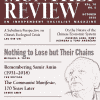
October 2018 (Volume 70, Number 5)
This issue is dedicated to remembering the life and work of Samir Amin (1931–2018), the greatest single theorist of imperialism of the late twentieth and early twenty-first century, and one of the leading world activists and organizers in today’s anti-imperialist struggle. | more…
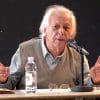
The Communist Manifesto, 170 Years Later

Nothing to Lose but Their Chains
In this excerpt from his forthcoming title, Can the Working Class Change the World?, Yates details the historical development of the working class—its potential for (and barriers to) unity, and how it is still the only force in society that can bring about its fundamental, radical transformation. | more…

How does it end?
A new poem by Marge Piercy, author of many books of poetry—most recently Made in Detroit. | more…